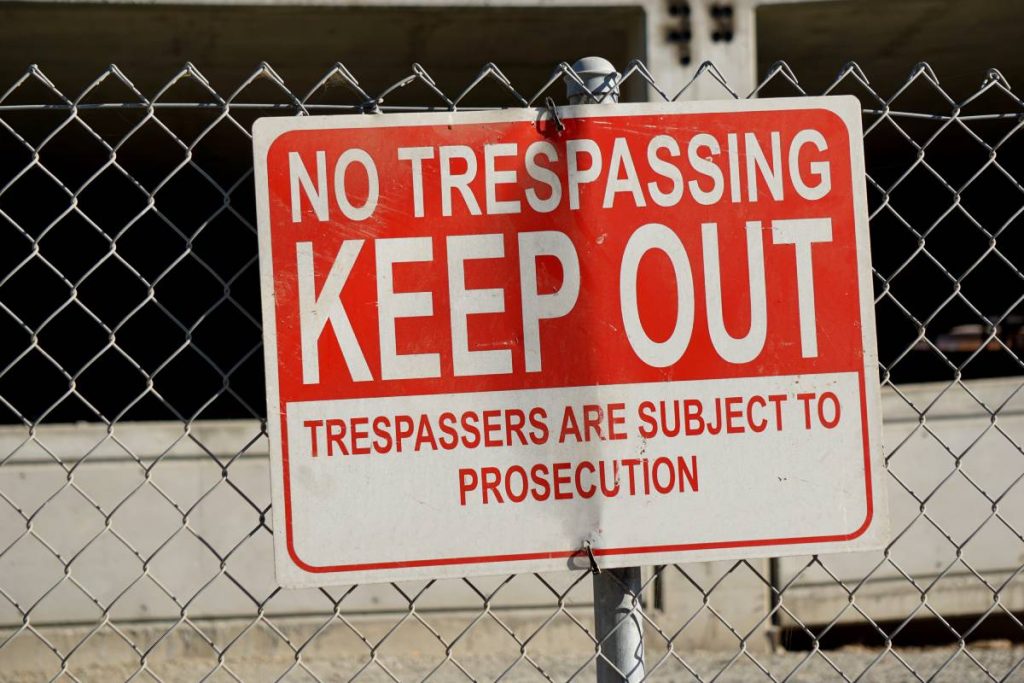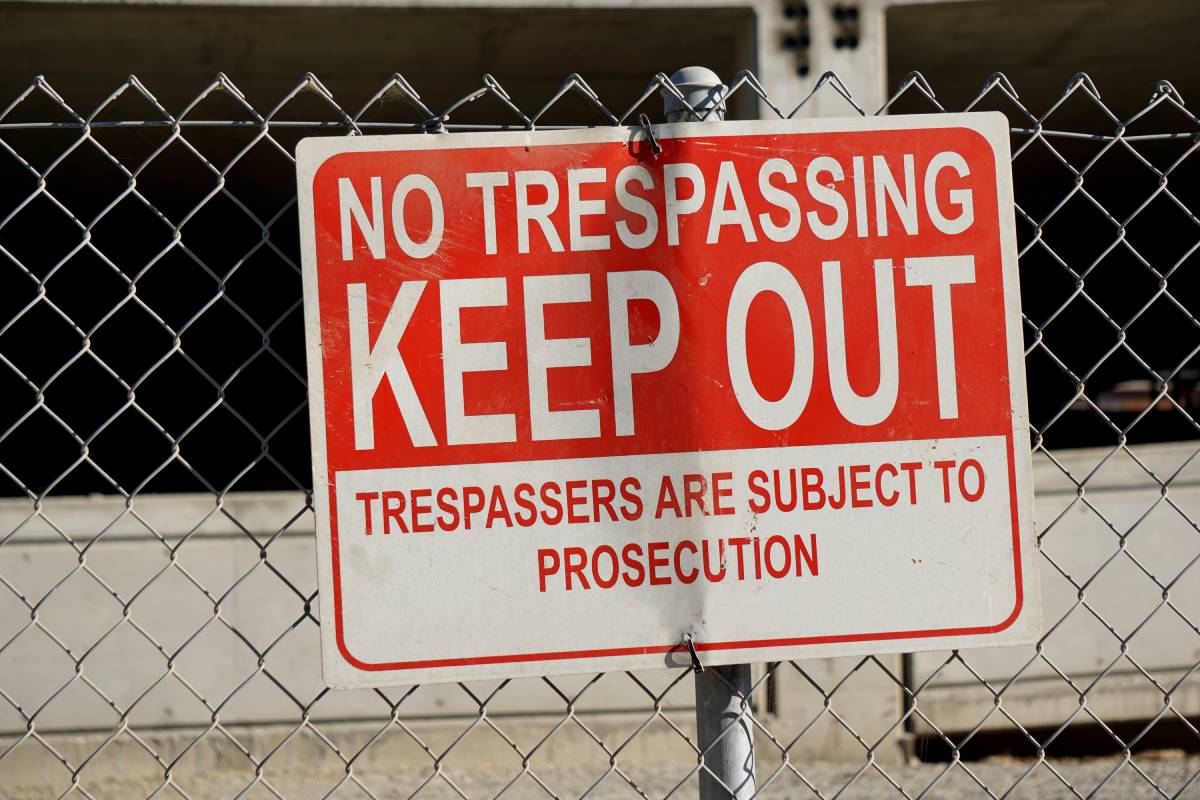In Arizona, criminal trespass (A.R.S. §§ 13-1502 to 13-1504) is charged in three degrees based on where the unlawful entry occurs and the risk involved. Third-degree (A.R.S. 13-1502) is a Class 3 misdemeanor for knowingly remaining after a clear request to leave, ignoring posted “No Trespassing” signs, or entering railroad property. Second-degree (A.R.S. 13-1503) is usually a Class 2 misdemeanor for unlawfully entering or remaining in non-residential structures or fenced commercial yards. First-degree (A.R.S. 13-1504) is the most serious and can be a felony when it involves a residential structure, critical public services, or being armed. Penalties range from fines and probation on misdemeanors to jail or prison for felony first-degree trespass, and courts may also order restitution and stay-away conditions. Remember, every case is unique, and the best course of action will depend on the specific circumstances of your situation. An experienced Phoenix criminal defense lawyer can provide personalized advice tailored to your individual case.
What is criminal trespass in Arizona?
In Arizona, criminal trespass (A.R.S. §§ 13-1502 to 13-1504) is charged in three degrees based on where and how the entry occurs. Third-degree (A.R.S. 13-1502) is a Class 3 misdemeanor and covers knowingly entering or remaining on property.
What Are the Penalties for Criminal Trespassing in Arizona?
In Arizona, criminal trespassing has three levels. Third-degree (ARS 13-1502) can mean up to 30 days in jail and a $500 fine. Second-degree (ARS 13-1503) may lead to 4 months in jail and a $750 fine. First-degree (ARS 13-1504) can result in 6 months in jail or, as a felony, up to 4 years in prison.

What is criminal trespass in Arizona?
Criminal trespass in Arizona occurs when a person knowingly enters or remains unlawfully on someone else’s property. This can include residential structures, commercial buildings, fenced yards, or even open land. The severity of the offense depends on various factors, including the type of property involved and the alleged trespasser’s intent.
Arizona law categorizes criminal trespass into three degrees, each with its own set of elements and penalties. Let’s explore these categories to gain a comprehensive understanding of criminal trespass in Arizona.
Types of criminal trespass in Arizona
Third-degree criminal trespass (ARS 13-1502)
Third-degree criminal trespass (ARS 13-1502) is the least severe form of trespass in Arizona. It typically involves entering or remaining on any real property after being asked to leave by the owner, a person in lawful control, or a law enforcement officer. This also includes entering railroad property without permission.
For example, if you’re hiking and unknowingly wander onto private property, and the owner asks you to leave but you refuse, you could be charged with third-degree criminal trespass. Similarly, if you’re found loitering in a railroad yard without authorization, you may face this charge.
Second-degree criminal trespass (ARS 13-1503)
Second-degree criminal trespass (ARS 13-1503) occurs when a person knowingly enters or remains unlawfully in or on a nonresidential structure or in a fenced commercial yard. This offense is more serious than third-degree trespass but less severe than first-degree trespass.
An instance of second-degree trespass might involve entering an abandoned warehouse without permission or remaining in a store after closing hours when asked to leave. The key element here is that the structure is nonresidential, distinguishing it from the more serious first-degree trespass.
First-degree criminal trespass (ARS 13-1504)
First-degree criminal trespass (ARS 13-1504) is the most serious form of trespass in Arizona, encompassing various actions including entering or remaining unlawfully in a residential structure or fenced residential yard, looking into a residential structure in reckless disregard of privacy, entering property with intent to exploit minerals, or entering critical public service facilities without authorization.
Examples of first-degree trespass might include breaking into someone’s home, peeping into windows of a residence, or entering a power plant without permission. The severity of this charge reflects the heightened privacy concerns and potential dangers associated with these actions.
Elements of criminal trespass in Arizona
For a person to be convicted of criminal trespass in Arizona, the prosecution must prove several key elements beyond a reasonable doubt:
- The defendant knowingly entered or remained on the property.
- The property belonged to another person or entity.
- The defendant’s presence was unlawful.
- The defendant had the requisite intent, which varies depending on the degree of trespass.
It’s important to note that “knowingly” is a crucial aspect of these charges. This means the defendant must have been aware that their entry or continued presence was unauthorized. This element can sometimes provide a basis for defense, particularly in cases where there’s ambiguity about property boundaries or permission.
Penalties for criminal trespass in Arizona
The consequences for criminal trespass in Arizona can be severe, varying based on the degree of the offense and any aggravating factors.
- Third-degree criminal trespass: Class 3 misdemeanor
- Up to 30 days in jail
- Fine of up to $500
- Second-degree criminal trespass: Class 2 misdemeanor
- Up to four months in jail
- Fine of up to $750
- First-degree criminal trespass: Class 6 felony
- Up to two years in prison for a first offense
- If involving a critical public service facility: Class 5 felony with harsher penalties
Aggravating factors, such as prior convictions or the presence of weapons during the trespass, can increase these penalties significantly. For instance, if a person commits first-degree trespass while armed, they may face additional weapons charges and enhanced sentencing.
Defenses against criminal trespass charges in Arizona
If you’re facing criminal trespass charges in Arizona, several defenses may be available depending on the specifics of your case. A skilled Phoenix criminal defense attorney can help you explore these options:
- Lack of intent: Demonstrating that you didn’t know you were trespassing
- Permission or authorization: Proving explicit or implied permission to be on the property
- Mistake of fact: Genuinely believing you were on public property or your own property
- Necessity or emergency: Justifying trespass to prevent greater harm or respond to an emergency
These defenses can be crucial in building a strong case against criminal trespass charges. Your attorney will assess the specific circumstances of your situation to determine the most effective defense strategy.
Did You Know?
The court may consider mitigating factors such as a clean criminal record, cooperation with the police, or a mistaken belief about property boundaries. Submitting documentation like counseling reports, letters of good character, or psychological evaluations might reduce your sentence.
Potential long-term consequences beyond legal penalties
A criminal trespass conviction can have far-reaching consequences beyond the immediate legal penalties. These may include:
- A permanent criminal record, affecting future employment opportunities
- Difficulty securing housing due to background checks
- Potential immigration consequences for non-citizens
- Strained personal and professional relationships
- Financial repercussions, including increased insurance rates or lost job opportunities
Important Note: Even a conviction for a misdemeanor can affect your employment, housing, and licensure. It may appear on background checks and result in long-term hurdles in personal and professional areas of your life.
Given these potential long-term impacts, it’s crucial to take criminal trespass charges seriously and seek professional legal advice. The consequences of a conviction can extend far beyond the courtroom, affecting various aspects of your life for years to come.
Steps to take if charged with criminal trespass in Arizona
If you find yourself facing criminal trespass charges in Arizona, taking prompt action is essential:
- Seek legal representation immediately
- Gather evidence that might support your defense
- Avoid discussing your case with anyone other than your attorney
- Work with your attorney to explore all available options
- Comply with all court orders and attend all required hearings
Remember, every case is unique, and the best course of action will depend on the specific circumstances of your situation. An experienced Phoenix criminal defense lawyer can provide personalized advice tailored to your individual case.
Criminal trespass in Arizona is a complex legal issue with potentially serious consequences. Whether you’re a property owner seeking to protect your rights or someone facing trespass charges, understanding the law is crucial. By familiarizing yourself with the different degrees of trespass, potential defenses, and the importance of legal representation, you’ll be better equipped to navigate this challenging legal terrain. Always remember that the law is nuanced, and professional legal advice is invaluable when dealing with criminal charges of any kind.
13-1502 – Criminal Trespass FAQs
Do you have to post no trespassing signs in Arizona?
No, you are not legally required to post no trespassing signs in Arizona to protect your private property, but having clear signs makes it much easier to prove someone knowingly trespassed. A sign can help strengthen your case if you ever need to take legal action.
Can you put no trespassing signs in your yard?
Yes, you can and should put no trespassing signs in your yard if you want to clearly mark your property boundaries in Arizona. Place signs where they are visible from entry points like driveways, gates, or pathways.
Can you stop someone from walking on your property in Arizona?
Yes, in Arizona, you have the right to stop someone from walking on your private property without permission. You can post no trespassing signs, give a verbal warning, or ask law enforcement to intervene if someone ignores your requests.
What to do if someone will not leave your property ?
In Arizona, if a person refuses to vacate your private property after being requested to do so, they could be guilty of criminal trespass under A.R.S. § 13-1502 or § 13-1503. Politely yet firmly instruct them to vacate. Do not use force if they fail to vacate , rather call local law enforcement and have the trespass reported. Document the incident if it is possible to do so, particularly if it can occur again.
Are You Dealing with Criminal Charges in Arizona? We Can Help
If you or someone you love is facing criminal charges in Arizona, contact the Phoenix criminal defense lawyers at Gurion Legal today. Few firms in Arizona boast the services of a certified criminal law specialist. Gurion Legal offers one with the personal attention you can only get from a boutique firm.
Lead Attorney Omer Gurion is a Board-Certified Criminal Law Specialist under the State Bar of Arizona Board of Legal Specialization, and has built a firm dedicated to ensuring that defendants receive experienced legal representation as guaranteed by the Constitution. Meet our attorney.
Contact the Gurion Legal today by calling (480) 800-0020 or by filling out one of our contact forms to discuss your case today. Our criminal defense lawyers can review your case and advise you of your legal options.




